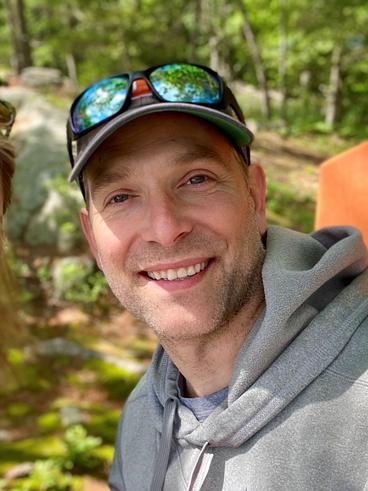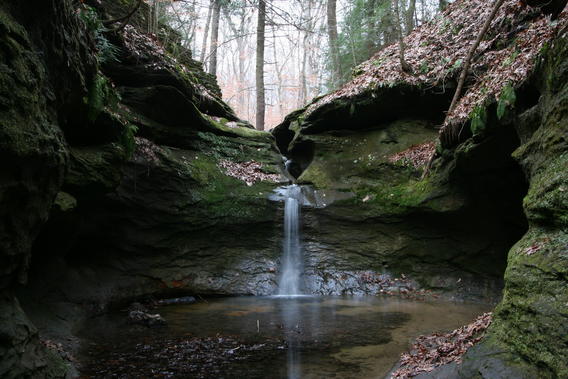
Cory Suski is a Professor in the Department of Natural Resources and Environmental Sciences at the University of Illinois at Urbana-Champaign. He joined the Midwest Climate Adaptation Science Center's Consortium Leadership Team in the fall of 2022. We asked Cory a few questions to learn more about his background and his work with the MW CASC.
What’s your background? Specifically, what brought you to climate adaptation work in the Midwest?
I am from Canada and did my undergrad in Environmental Science (biology). I did my master’s at the University of Illinois asking questions related to fish ecology and conservation. My Ph.D. used physiological tools to understand how fish respond to different natural and anthropogenic stressors. So, I have a blend of field ecology and lab physiology in my background, which is a fabulous set of tools for asking questions about how fish respond to climate-related stressors.
What kind of research do you do? Any current projects you’d like to share?
Broadly, my group works to conserve fish populations that are experiencing environmental or human-induced stressors. The scale that we work at is really variable – some projects have us analyzing the activity of genes in tissues to quantify stress, while other projects have us modeling fish distributions across the landscape to quantify large-scale trends. In the past, we’ve worked to design conservation strategies to help anglers catch-and-release fish in sustainable ways, we’ve developed new barriers to deter the spread of invasive carp, and we’ve worked to understand how fish respond to short-duration heatwaves. At the moment, we are trying to figure out why invasive carp in the Illinois River have stopped spreading towards Chicago, and we are looking at movement ecology and space use of fish that have been released following fishing tournaments. We also have a great new project starting on paddlefish conservation.
Do you have any advice for students & early career researchers in the MW CASC network?
One piece of advice that I give to all of my students is to do a little bit of writing every day – make writing a habit. Writing is difficult and unnatural. It takes a lot of practice. Many undergrads have experienced success writing papers the night before they are due. Unfortunately, that strategy won’t work when writing papers for peer-reviewed outlets, which will require a more substantial investment of time and effort. The only way to become a good writer is to write, so, for grad students, I think it is important they try to write every day. Don’t worry if you are not happy with what you’ve written – you can fix it later. The key is to make progress.
What’s one thing about the MW CASC’s work that excites you or gives you hope?
I really like the team atmosphere within the CASC and how friendly and engaging the community is. Climate change is such a massive problem and will be impossible for any one person to address, and so collaborative, trans-disciplinary research environments such as the CASC will be super important to enact change moving forward.
What’s your favorite outdoor place in the Midwest?
We’ve spent a lot of time hiking around western Indiana over the past few years. A great spot that we love to visit is Turkey Run. When we are there, it is hard to believe it is in the Midwest!

The Midwest Climate Adaptation Science Center's Consortium Leadership Team is made up of representatives from the eight consortium member institutions. Learn more about its members here.
